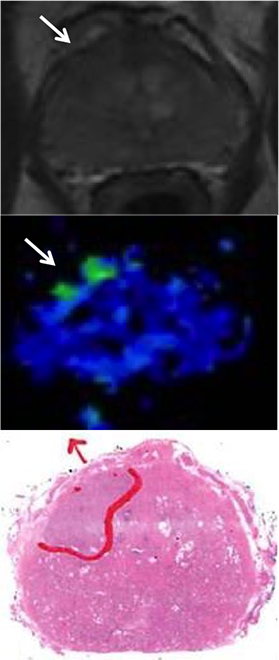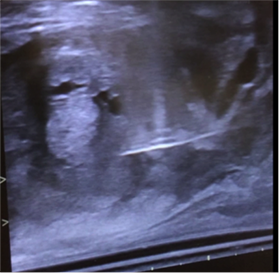Prostate cancer

We are a UK centre for major national and international studies including ProtecT, CANCAP (lead) VoxTox (lead), ICGC (major contributor), PRACTICALS, MOVEMBER, Genomic England, STAMPEDE, RADICALS, PACE, and NIHR IHC. In the last 5 years the prostate research group has together published over 200 papers and initiated 8 translational investigator led studies.
The current research focus in Cambridge is on improving the management and outcomes of men presenting with non-metastatic prostate cancer (over 80% of all diagnosis). To feed into this programme, we have critical strengths in a number of areas:
1. Extensive network of academic research. Cambridge benefits from a vibrant web of cross-collaborative research across the CCC and wider university campus. This encompasses diverse disciplines including pathology, cell and molecular biology, genetics, chemistry, oncology, urology, radiology, epidemiology, engineering, mathematics and computational biology.
2. Excellent clinical care. This is illustrated by the CAMPARI concept, which is a multi-disciplinary group of NHS and academic clinicians as well as allied health professionals with a common goal of improving patient care. This initiative stretches from first presentation, accurate biopsies, precise risk stratification, delivery of state-of-the-art treatment (image guided radiotherapy, robotics, brachytherapy, tailored active surveillance, chemotherapy) as well as excellent patient support. Prostate cancer is strongly associated with age. Collaborative research has identified over 73 single nucleotide polymorphisms (SNPs), or small mistakes in the genetic code, associated with prostate cancer. We are testing how to use these SNPs to identify high risk populations when screening for prostate cancer.

3. Cutting edge imaging. The strength of our integrated imaging capabilities has spread across diagnosis and clinical delivery and into the research arena. This is highlighted by a number of very successful collaborative studies based on MR imaging including the CHIRRP, DMAPS and PAART studies. This is now being extended to new innovative modalities (PET acetate and hyperpolarised C13) with a focus on detecting lethal cancers.
4. Novel diagnostics. Cambridge is also leading in using innovative diagnostics (e.g. introduction of the Uro-Nav biopsy system) and in house development of a novel device for low morbidity, local anaesthetic transperineal biopsies (CAMPROBE). In addition we have established a pipeline of studies exploring new serological assays and biomarkers for detection of lethal cancers working in tandem with image-guided biopsies.
5. Better understanding of disease epidemiology. We have undertaken studies revealing demographic changes in the presentation and treatment of prostate cancer through close working with Public Health England and the cancer registries (assembling cohort data from >20,000 men with longitudinal follow up). More recently this work has resulted in the derivation of a new clinical risk model using data from 10,000 UK men, which outperforms the NICE criteria in predicting cancer specific mortality at diagnosis. Our on-going work will deliver individualised risk prediction and treatment stratification tools through a combination of optimal clinical classification and molecular subtyping .
6. Innovative combinatorial therapies. We have established a platform for window studies to investigate new drug agents in combination with standard therapies. This is exemplified by the currently accruing Astra Zeneca supported CANCAP series of neo-adjuvant studies. In addition, Cambridge leads research in radiotoxicity and technical radiotherapy (VoxTox), which is uncovering new methods to reduce morbidity and side effects for patients.
7. World-class tissue and bio-resource. We have built up (and are continuing to accrue) a large urological bio-repository (Cambridge Urological Bio-repository), which holds tissue (diagnostic and surgical) as well as bio-samples from over 3500 men at different stages and treatments for prostate cancer. All these men have detailed clinical annotation and meticulous follow up. This repository has allowed Cambridge to be a leader in a number of ground-breaking studies, which have elucidated new molecular classifications and predictive markers of outcome.




















